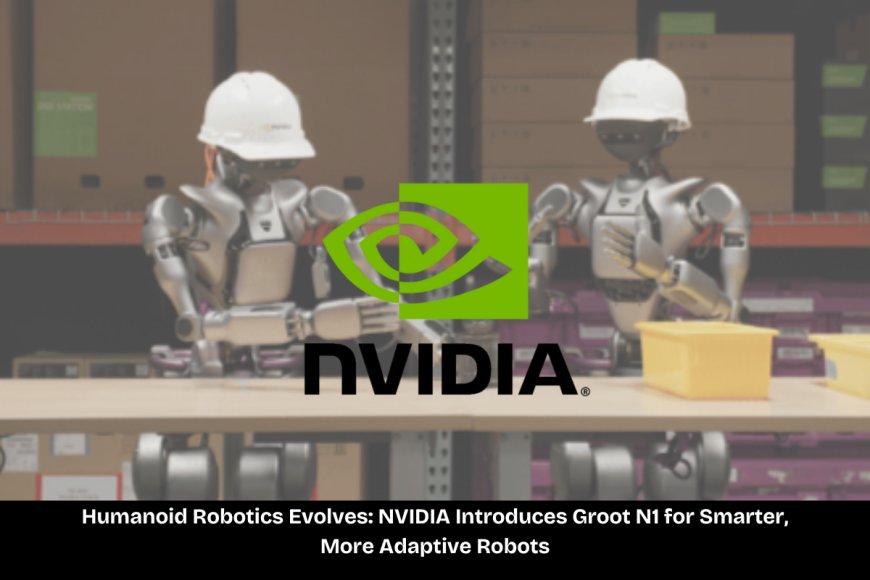The Future of Robotics: NVIDIA’s Groot N1 Brings AI-Driven Intelligence to Humanoid Machines
NVIDIA unveils Groot N1, an AI model for humanoid robots, enhancing autonomy and adaptability. The robotics market is set for massive growth.

NVIDIA has introduced Groot N1, an advanced AI model intended to better humanoid robots. CEO Jensen Huang announced Groot N1 at the GTC 2025 event, which is an open-source, pre-trained model that enables robots to move and think like people. It was trained using real-world movements, synthetic data, and large-scale internet footage.This approach allows humanoid robots to execute activities such as gripping things and carrying out multi-step processes without human assistance.
Groot N1 is designed with a dual-system architecture, identical to human intellect. It is divided into two systems: System 1 (the diffusion transformer) and System 2 (the vision-language model). System 1 enables robots to react quickly and naturally, exactly as humans do, while System 2 assists them in understanding their surroundings and planning actions. This combination allows robots to perform difficult jobs more effectively. Groot N1 is a single AI model with one set of weights, thus it does not require several models for different jobs, making it more effective for a variety of robots, including the Fourier GR-1 and 1X Neo.
NVIDIA has made Groot N1's training data available on sites such as Hugging Face and GitHub, allowing developers to customize it to meet their specific needs.The AI model may be customized for a variety of robots and jobs, making it extremely versatile. Furthermore, NVIDIA intends to introduce the 'Jetson Thor' AI computer in 2025 to enhance the capabilities of humanoid robots.This decision demonstrates the company's increased emphasis on AI-powered robotics as a significant source of innovation.
The race for humanoid robotics is heating up, with major technology companies getting involved. OpenAI is developing its own humanoid robot, while Samsung has picked up Rainbow Robotics to enter the market. Companies like as Tesla and Boston Dynamics are also developing robots for domestic and industrial use. The market for humanoid robots is predicted to rise dramatically, from $2.98 billion in 2024 to a whopping $243.40 billion in 2035. With such rapid progress, AI-powered robots are set to become an integral part of daily life.
This article is based on information from The Tech Portal







